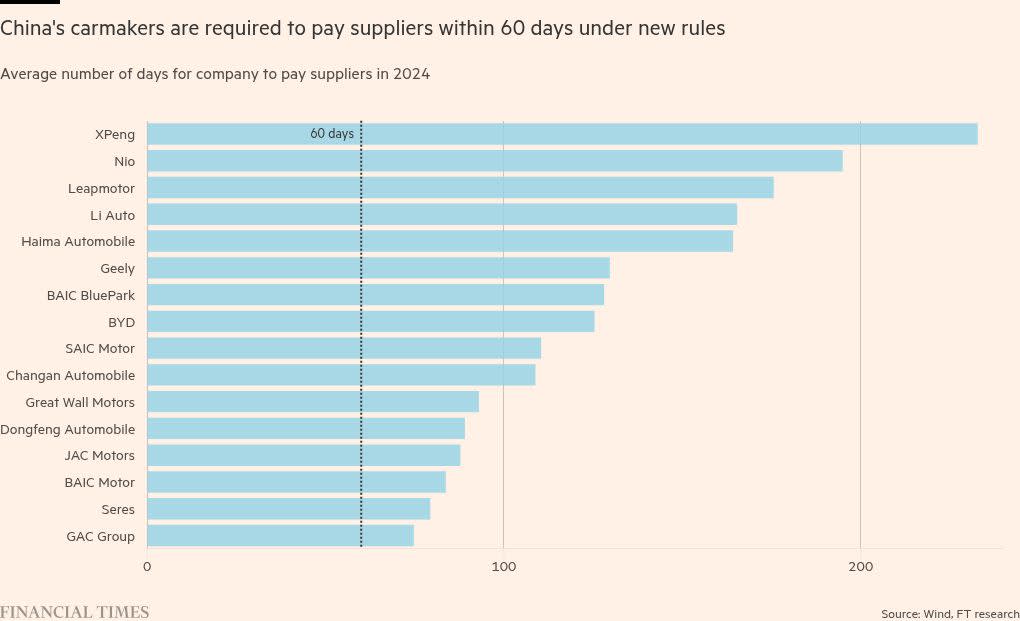Stay informed with free updates
Simply sign up to the Automobiles myFT Digest — delivered directly to your inbox.
BYD and other Chinese carmakers have vowed to make timely payments to suppliers after Beijing signalled concern at some industry practices amid a cut-throat price war.
Around a dozen domestic carmakers, including Geely, Xiaomi and state-backed GAC and FAW, have in the past day all committed to a 60-day bill payment period for their suppliers with the aim of “promoting high-quality development” and “ensuring supply chain stability”.
The auto groups’ pledges come after Chinese officials signalled a crackdown on the industry’s growing reliance on so-called supply chain financing — a practice of funding operations by delaying payments to suppliers.
China’s Ministry of Industry and Information Technology, the country’s top automotive regulator, warned representatives from 16 large domestic carmakers against aggressive price cuts and mounting unpaid bills to suppliers in a closed-door meeting last week, according to two sources familiar with the matter.
China’s state council had issued rules in March requiring large companies to settle bills with smaller suppliers within 60 days. The regulations took effect on June 1.
Chinese auto suppliers have long been forced to endure payment periods as long as 200 days and accept promissory notes from their clients as a payment method.
“If you don’t accept, the clients will just go find another supplier,” a domestic auto supplier who asked to remain anonymous told the Financial Times. Almost all large Chinese carmakers, including BYD and Geely, have promissory note systems for suppliers to trade.
Upstream industries have also felt the squeeze from the auto price war. The China Iron and Steel Association, which represents the country’s biggest mills, issued an uncommonly blunt criticism of domestic auto groups in a statement on Tuesday.
“Since last year, some automakers have demanded price reductions of over 10 per cent, far exceeding what steel mills can reasonably accept,” the industry body said. “Payment is delayed for several months and only made through promissory notes.”
It urged the industry to uphold the principle of “no payment, no delivery”.
Paul Gong, an auto analyst at UBS, noted the phenomenon had become an “industry norm”, partly owing to long-standing overcapacity issues across the supply chain.
“Part of the reason is the industries . . . always have some extra capacity. That’s why the whole supply chain is willing to fund the downstream customers’ working capital,” Gong said.
He added that Chinese carmakers typically opted for longer payment terms or exchanged faster payments for better component pricing.
Last month, BYD announced a fresh round of price cuts on more than 20 models across its electric vehicle line-up, shocking the industry with an Rmb55,800 ($7,770) price tag of the pure battery-powered Seagull hatchback. Similar moves from rivals including Changan and Leapmotor followed the discounts.



